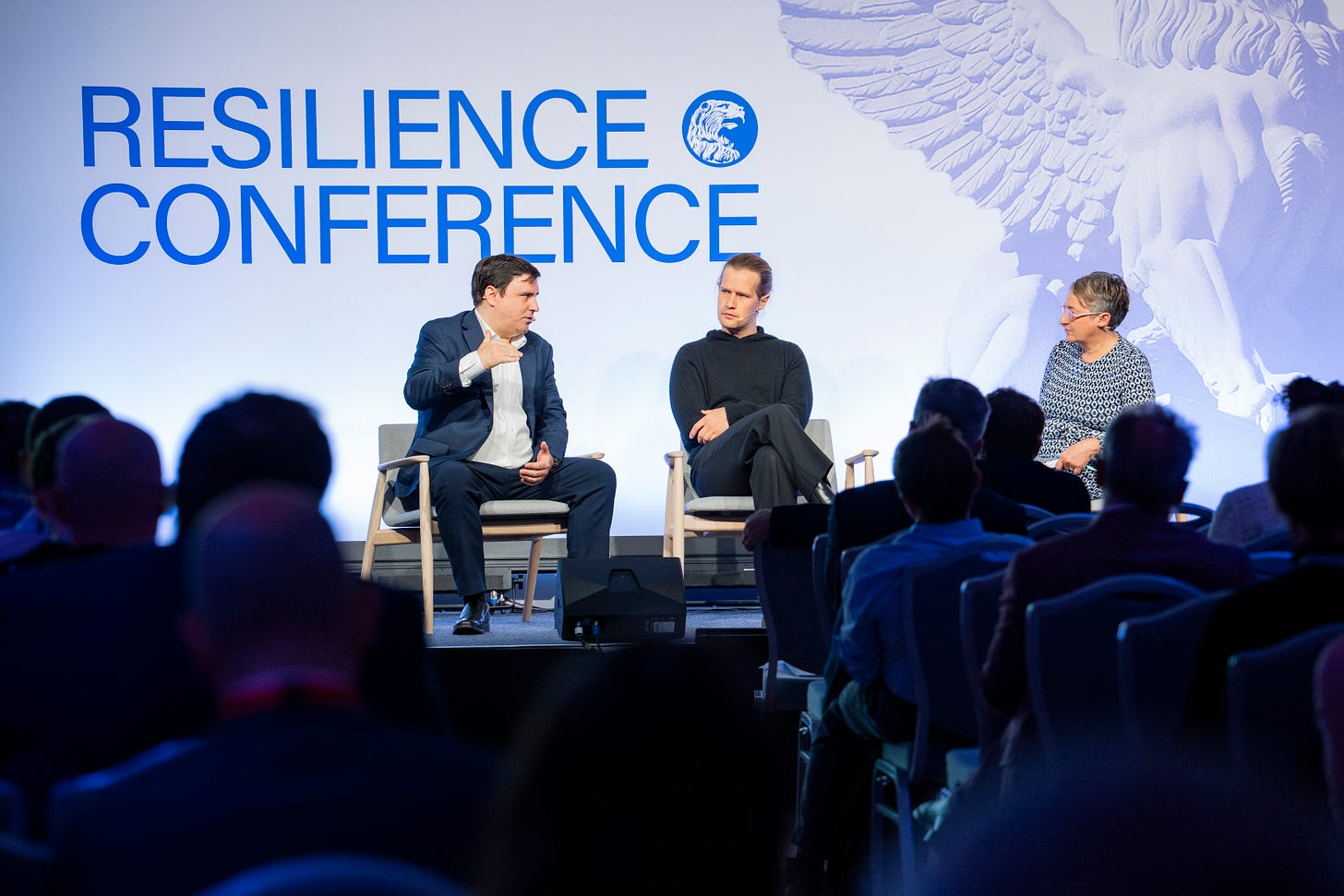Never Lift Revealed as Early Investor in Cambridge Aerospace as Startup Confirms $136M Raised
The defence tech startup, founded by MIT’s Steven Barrett and chaired by Grant Shapps, is racing to scale interceptor production

Cambridge Aerospace today disclosed that it has raised $136 million across three funding rounds and confirmed for the first time that Never Lift, the US-based investment firm, has been backing the company since its inception.
Speaking at the Resilience Conference on Tuesday, Never Lift general partner Charlie March exclusively revealed that the firm had participated in every round of funding to date: pre-seed, seed and Series A. Until now, only the company’s $100 million Series A had been made public. “We’ve been in every round,” March said. “We were very fortunate to be working with Steven [Barrett] from almost day one.”
The disclosure highlights the speed at which Cambridge Aerospace has attracted capital since its founding just over a year ago. Professor Steven Barrett, a former MIT researcher who is now based at Cambridge University, registered the company while still at MIT. The choice of name reflected his expectation that the startup would ultimately be based in one Cambridge or another.
“I actually registered Cambridge Aerospace while I was still at MIT, not knowing whether it would end up in Cambridge, Massachusetts, or Cambridge, England,” Barrett said.
The company, which has also received backing from Lux Capital, is developing interceptors for a European-built “Iron Dome” concept capable of countering both Iranian-made Shahed drones and larger ballistic missile threats. Barrett said the war in Ukraine has underscored the need to defend against low-cost drones, where costly missile systems are often used to shoot down cheap targets.
“Using a million-pound missile against a Shahed isn’t sustainable,” Barrett said. “We’re focused on building interceptors that are reliable and affordable, capable of protecting critical infrastructure with very high assurance.”
He added that the team plans to test their products in Ukraine but aims to avoid being there until the technology is ready for deployment. “We don’t want to be in Ukraine for the sake of being in Ukraine,” Barrett said.
Cambridge Aerospace is currently producing and testing interceptors on a weekly basis, but Barrett acknowledged that deployment at scale would require manufacturing “hundreds per month” – a goal that will likely necessitate additional capital. While he did not confirm a new raise, these comments suggest further funding may be on the horizon.
The founding team brings together figures from academia, government, and defence. Alongside Barrett, co-founders include ex-Admiral Chris Sullivan, investor Junaid Hussain, and – controversially – former UK defence secretary Grant Shapps, who serves as chair. Shapps is providing “strategic guidance” as the company pursues its first commercial contracts, Barrett said.
March said Never Lift had quietly built a portfolio of investments in “resilience and sovereignty” across aerospace, defence, AI, energy, and infrastructure. He said that while early-stage capital in Europe is increasingly available, scaling later-stage defence hardware ventures remains a challenge. “In the US, the LP community is more risk-tolerant,” he said. “That makes it possible to raise quickly and build fast.”
Barrett added that Cambridge Aerospace had incorporated entities in the UK, Germany, and Poland as part of its growth strategy, although operations are currently based in the UK. Future areas of focus may include maritime defence, reflecting lessons from Ukraine’s naval campaigns.
For now, the company’s priority is accelerating production of its vertically integrated interceptor systems, which combine in-house propulsion, electronics and hardware design. “We test every week,” Barrett said. “That way, we learn how to iterate the technology and how to manufacture it at speed.”

